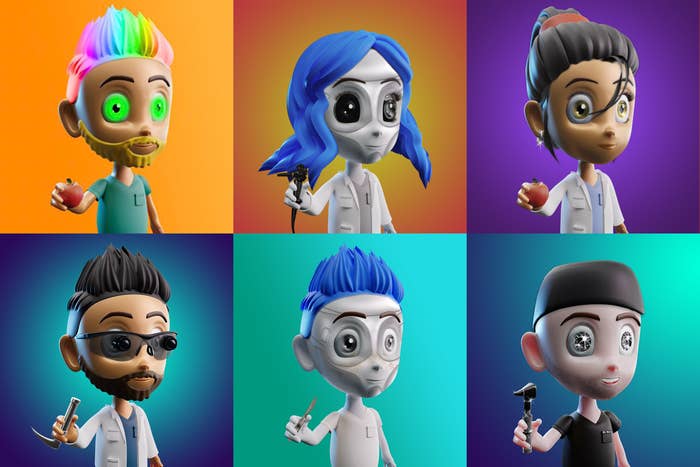
A group of TikTok- and Instagram-famous physicians say they have a solution for the “red tape” of the current medical system: NFTs of cartoon doctors.
These NFTs, called MetaDocs, are supposed to give buyers access to real doctors, almost like a Web3 telehealth subscription. When MetaDocs launched in December, it claimed that it had enlisted a legion of celebrity doctors — which have a collective social media following of 70 million and included “Dr. Pimple Popper” Sandra Lee and plastic surgeon Dr. Richard Brown of TikTok fame — whom it would make available for private DMs, group “ask me anything” sessions, and one-on-one video chats to those who buy in. MetaDocs founder Dr. Sina Joorabchi said he hoped that from there, it would evolve into a full-fledged virtual clinic in the so-called metaverse, where patients can put on a haptic suit and be examined remotely by a physician in virtual reality.
But now, MetaDocs is facing backlash from the medical community, both because it used doctors' names (including Lee's) without permission, and because it is not actually licensed as a telemedicine service. That means its doctors cannot legally make diagnoses, write prescriptions, or give personalized medical advice to anyone who buys a MetaDocs NFT. A further wrinkle: Doctors are almost always required to be licensed in a state in order to practice there, including through telehealth services.
“At this point, we’re hesitant to refer to anybody as a patient,” Dr. Dustin Portela, a MetaDocs physician and practicing dermatologist, told BuzzFeed News.
"At this point, we’re hesitant to refer to anybody as a patient."
According to a recent white paper, the presale cost of a MetaDocs NFT will be 0.2 ETH, or about $570, though the company hasn’t determined an exact price yet. But why would someone pay hundreds of dollars for a cartoon so they could "ask a doctor anything" if they are not seeking some form of medical advice?
Joorabchi, an ear, nose, throat, and facial plastics doctor who refers to himself as a “medical infotainment” provider, believes the MetaDocs NFTs offer other benefits. “Value isn’t just medical care,” he said. “Our deliverable is connecting people with these doctors for a value of whatever they want to talk about or connect with.”
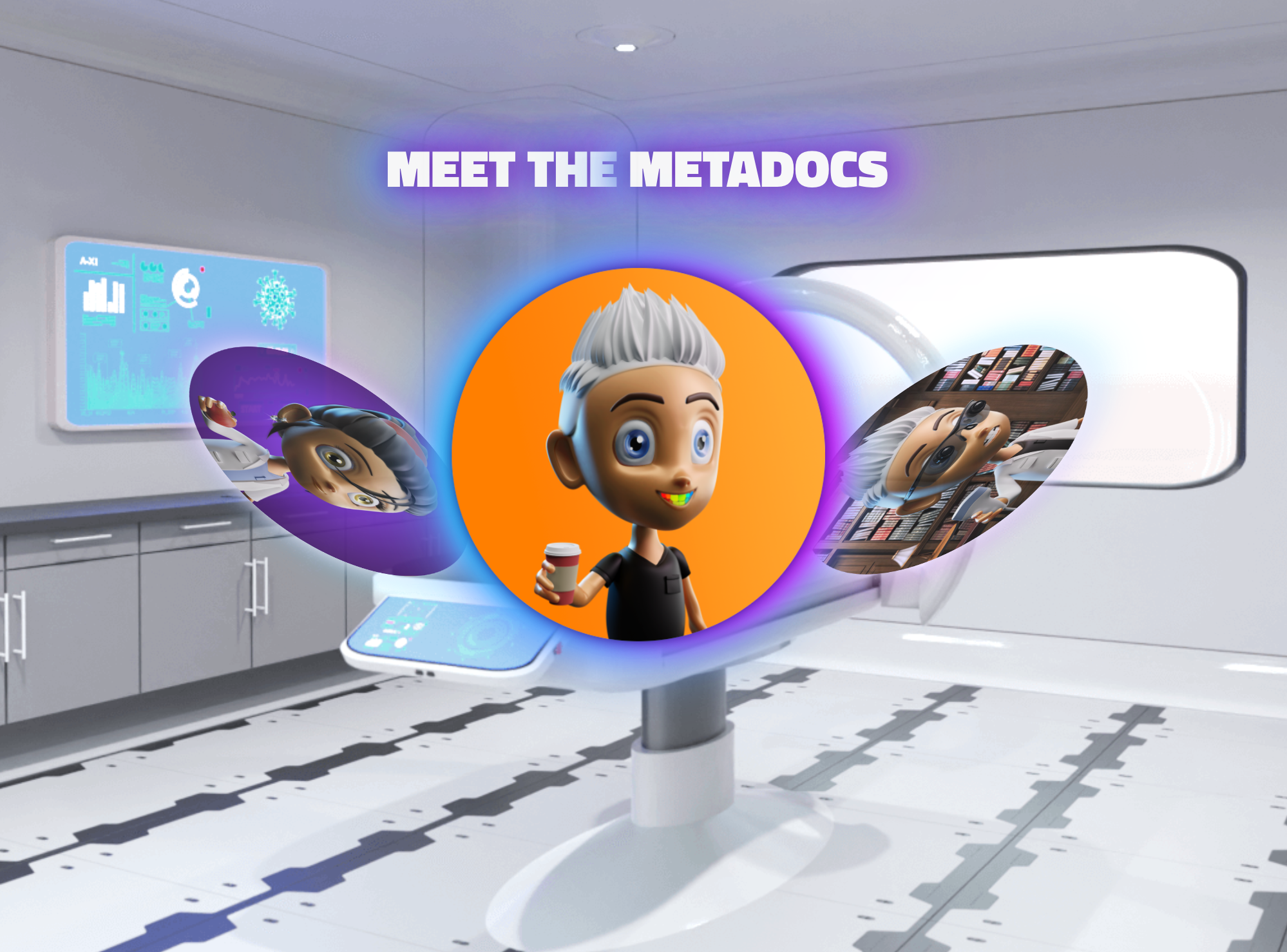
MetaDocs has also run into problems with the doctors it has brought on board to provide services to its NFT holders. It has now removed Lee and at least eight other physicians from its roster, some because they had never agreed to participate, and others because they grew uncomfortable with the project. MetaDocs had also listed as participants a doctor who left his hospital position as a trauma surgeon following remarks related to COVID-19 response, as well as three doctors whose LinkedIn profiles show they are still undergoing residency training.
BuzzFeed News was not able to determine the current qualification and medical affiliation of every doctor listed in the MetaDocs materials. However, being popular on social media appears to be one of the most important credentials.
“If your child is in respiratory distress in the middle of the night, having a surgeon famous for dancing on TikTok text you might not be that useful,” Dr. Ryan Marino, a medical toxicologist at University Hospitals in Cleveland who is not affiliated with MetaDocs, told BuzzFeed News.
Joorbachi, who has 1.9 million TikTok followers, said he’s a recent crypto convert, “getting really into NFTs” after investing in the popular Stoner Cats collection backed by Ethereum cofounder Vitalik Buterin and actor Mila Kunis. His wife suggested pursuing a homegrown NFT venture, so Joorbachi combined his two main interests: medicine and crypto.
MetaDocs’ mechanisms are outlined in its white paper, which explains a system where NFT buyers will receive “heart tokens” for each day they own a MetaDocs NFT. Tokens can be redeemed for three tiers of doctor “experiences,” from DMs to AMAs to video chats. The MetaDocs website also states that NFT holders will receive “discounts on selected apparel, personal care products, medical testing, health supplements and much more.”
"I don't have the research to back it up… Just going off what I've heard through the grapevines."
So far, many users’ interactions with doctors have happened in a now-deleted “Ask a Doc Chat” within the project’s Discord, where hundreds of users, referred to as “patients,” could solicit advice from MetaDocs physicians. Users posted questions about the harms of performance-enhancing drugs, what to say to someone who is dying, and whether they should be concerned about internal organ pain.
In March, one member asked about the effects of diet sweeteners. A MetaDocs doctor identifying as Dr. Shane Williams, a family medicine doctor in Florida, responded that “the general concensus is that these COULD lead to issues down the line (potential GI cancer?). I don't have the research to back it up… Just going off what I've heard through the grapevines.”
But the channel contained no disclaimers or content warning denoting that comments should not be construed as medical advice. Joorbachi told BuzzFeed News that the project’s lawyer, Eli Pollack (who is also Joorabchi’s brother-in-law), is currently working on a type of waiver that patients will sign before interacting with doctors. In an email, Pollack said, “the overall purpose of the waiver is to inform and educate anyone using our initial experiences that the information provided by our doctors are for medical education and informational purposes only.”
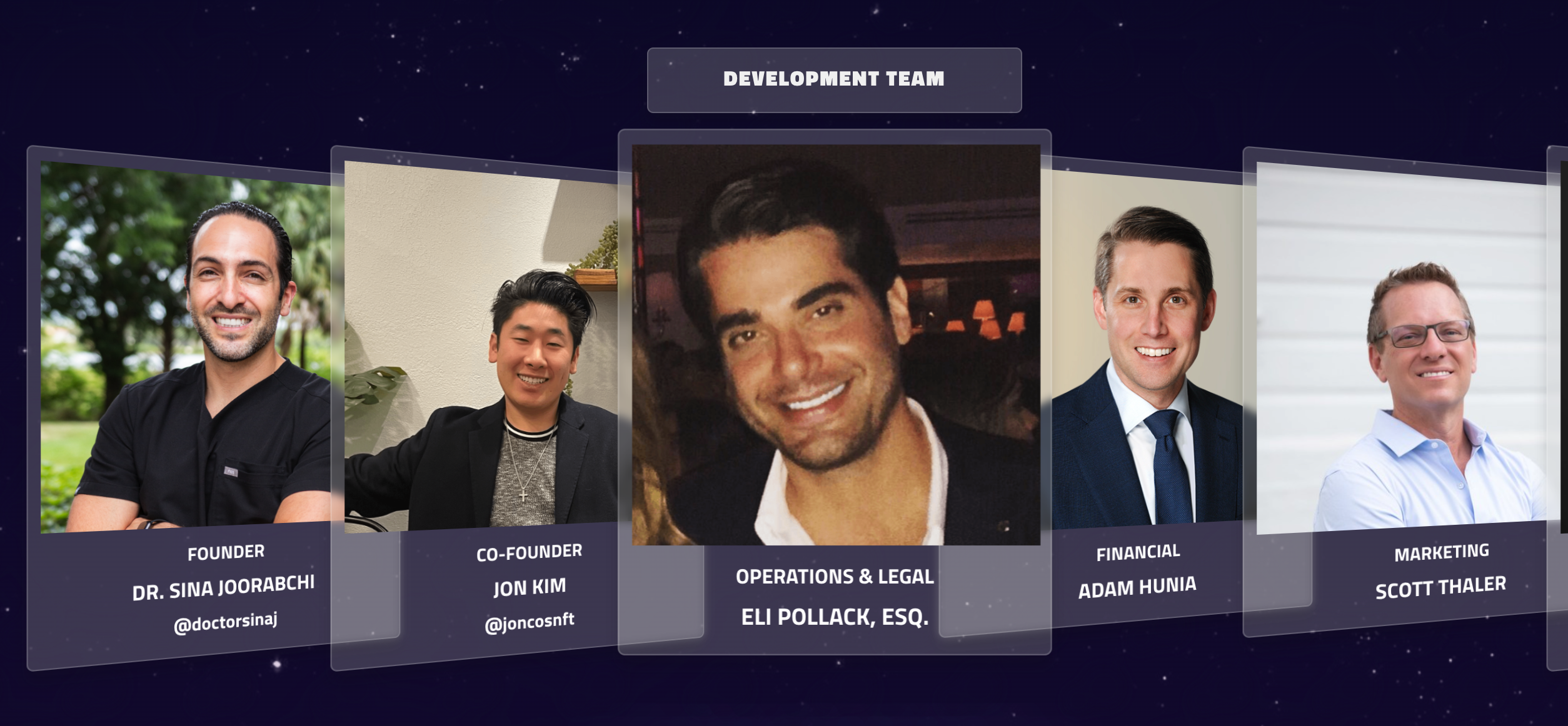
Some doctors tried to refrain from giving out medical advice in the Ask a Doc channel. In April, one user posted: “Sometimes I'll wake up with my kidney area in bad pain from sleeping on my side, is this normal?” A lead MetaDocs doctor identifying as Dr. Fayez Ajib, a “Part-time doctor, full-time gamer,” according to their Discord bio — advised the user to see their physician.
Shortly after BuzzFeed News began speaking to Joorabchi and other founders about the project, the Ask a Doc channel in the MetaDocs Discord disappeared. Jon Kim, a MetaDocs cofounder and NFT strategist, told BuzzFeed News that “a lot of chaos” occurred in the channel, so they “decided to stay on the more protective side because there are a lot of bad things that can happen, more than just a public image issue.”
"We’re working actively on a metaverse clinic; our team is coding that as we speak."
MetaDocs does plan to offer telehealth services by early 2023. “We’re working actively on a metaverse clinic; our team is coding that as we speak,” Joorabchi said. “In the future, a full-blown exam will be done virtually, which I don’t think is that far away.”
Pollack told BuzzFeed News that to provide these telemedicine services, MetaDocs will either need to be subsumed by an existing telemedicine provider or obtain telemedicine licensing of its own.
According to the white paper, MetaDocs plans to launch “virtual clinics” that will be accessible to those “in underserved, third world countries.”
Elizabeth Renieris, a professor of tech ethics at Notre Dame University, compared MetaDocs’ plans to Worldcoin, the crypto project collecting millions of iris scans from countries across the world in exchange for valueless cryptocurrency. “Why is it always the same playbook? Because the laws are not there and the jurisdiction is not there to hold it accountable,” she said.
Since MetaDocs’ announcement in December, it has been fiercely criticized as a “rug pull” scam (or pump-and-dump scheme), and MetaDocs physicians have been accused of trafficking in crypto’s relevancy to financially benefit themselves. In April, members of the healthcare community reacted with confusion when Brent Sugabo, MetaDocs’ community developer and a registered nurse, tweeted a now-deleted promotional video of MetaDocs team members and wrote that they are “putting their reputations on the line to create the future of healthcare in the metaverse!” (At least one of the doctors in the video is no longer affiliated with MetaDocs.)
"There are a lot of hype words thrown around that don’t really convey any meaning."
“There are a lot of hype words thrown around that don’t really convey any meaning,” said Marino of University Hospitals in Cleveland. Even assuming a world in which MetaDocs offered telehealth care, “they don’t guarantee that you could access the doctor your problem needs or even one that has completed medical training.”
Renieris told BuzzFeed News that MetaDocs could create dangerous, warped incentives for both doctors and patients. “If you’re incentivizing doctors to join this [project] based on their community of followers, or generating profit for token holders, it’s hard to reconcile with the ethos of care,” she said.
She also warned against a system that could blur the lines between a doctor providing general information and giving a patient medical advice. “It’s foreseeable that a lot of people will run with the information they hear, whether it’s going to be construed that way or not.”
British cardiologist Dr. Rohin Francis, who posted a YouTube video detailing his concerns with MetaDocs, told BuzzFeed News that “providing general health education online is very different from a direct patient consultation.” He also noted that “parasocial” relationships between doctors and their followers could motivate people to support a project about which they have little knowledge.
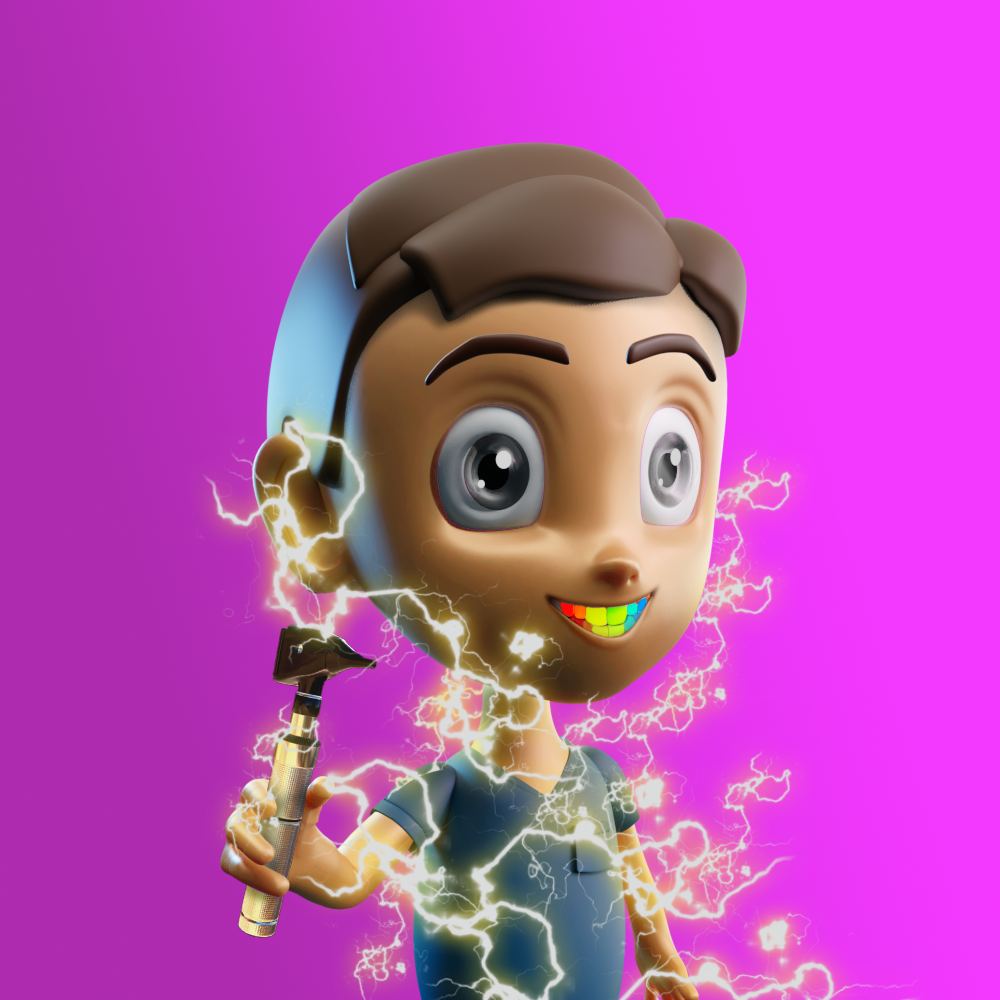
As critique has intensified, MetaDocs’ founders started quietly scrubbing information from the project’s documentation. More current white papers no longer include plans to “acquire Metaverse land investments in leading platforms” or develop a medical simulator game. And now, at least nine physicians who were once listed as MetaDocs have been removed. Two of these physicians — Karan Rajan and Muneeb Shah — told BuzzFeed News they did not consent to their names being included. When one Discord user asked about the fact that Lee’s name had been removed from documentation, Joorabchi replied that “truthfully we are still finalizing with her team.” A representative for Lee told BuzzFeed News that she was “still evaluating” whether to join the project.
Additionally, MetaDocs failed to disclose that at least two of the physicians listed in its white paper — both of whom have since dropped off the roster — are residents, or doctors in training. Adam Goodcoff, a resident at the University of Illinois at Chicago, told BuzzFeed News that “after further evaluating the project,” he decided not to participate. Shah, a resident at Campbell University, said the project had used his name without his permission.
On Tuesday, following the departure of several doctors, Joorabchi admitted on Discord that “this was definitely a lesson for us to walk before we attempt to run.”

MetaDocs has also removed from its website the name of an autism charity to which it had originally promised to donate its first $1 million in revenue. Although Joorabchi initially told BuzzFeed News that the group had not selected a charity, the project website initially stated that the money would be donated to The Autism Community in Action (TACA), an organization that has in the past supported scientifically unsound claims that vaccines cause autism. After Twitter users noticed the pledge on MetaDocs’ website, it was swiftly removed.
In a follow-up interview, Joorbachi said he was not aware of TACA’s stance on vaccines and understands why it was “an offensive choice.” “Truthfully, I chose TACA because my wife and I had worked with a member from TACA in Florida,” Joorbachi told BuzzFeed News, noting that his son is autistic. “When you see someone help your child, that means the world to you. That was my bias and my fault. Sometimes emotions can get carried away.”
Even after addressing community concerns, MetaDocs must still navigate a set of rules and advice that dictate how doctors can conduct business and engage with people online.
This is a lesson that one MetaDocs physician learned personally several years ago. MetaDoc Buck Parker, who potential NFT buyers might know from his appearance on both The Proposal and survivalist Bear Grylls’ The Island, stepped away from his position as a trauma surgeon at Utah’s St. Mark’s Hospital in light of comments he made in November 2020, amid a record COVID-19 surge, about pandemic response efforts. At the time, Parker allegedly wrote on Instagram to his 119,000 followers: “Lots of doctors are telling people not to travel for Thanksgiving. Here’s my take. #happythanksgivingbitches.” Parker did not respond to multiple interview requests.
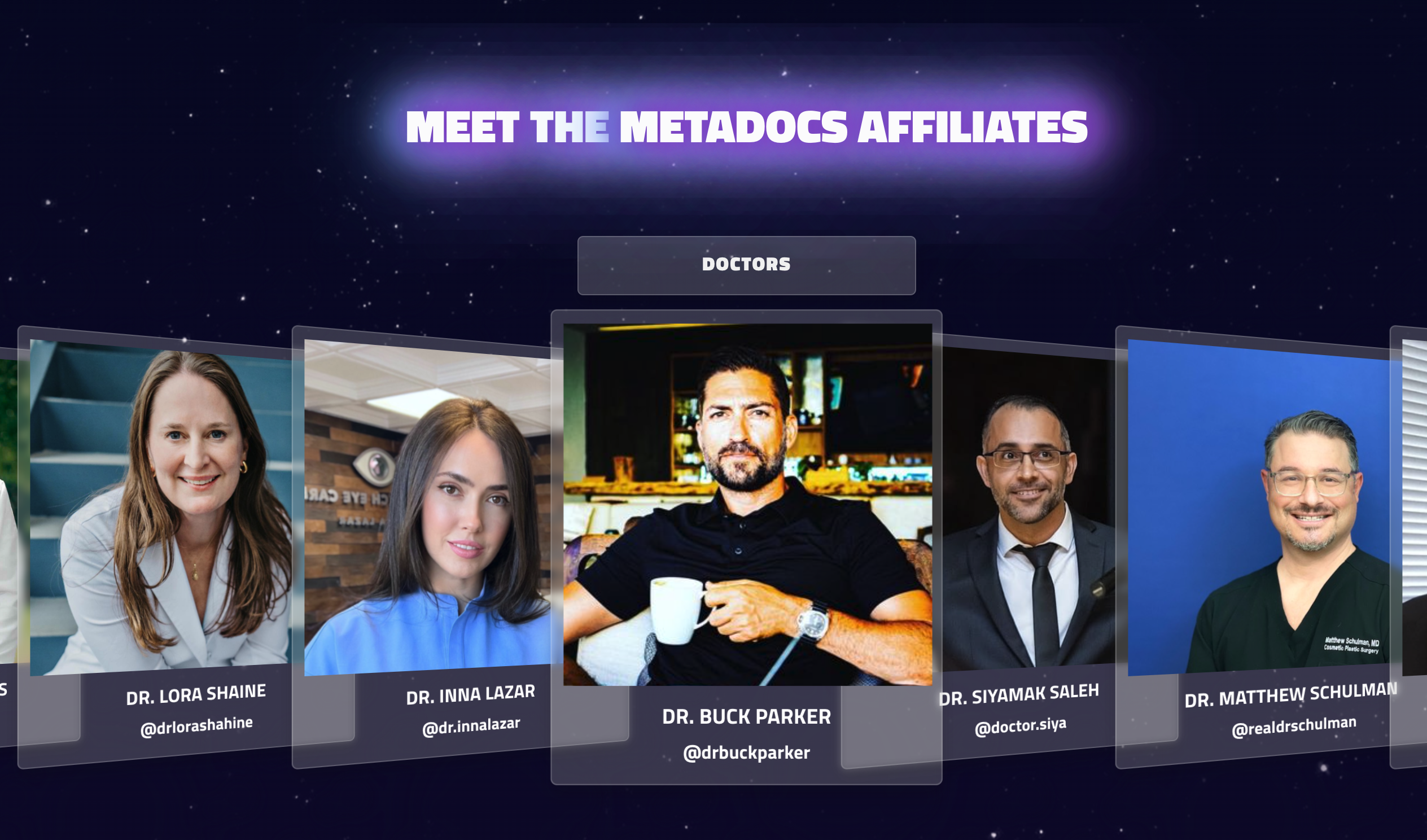
There are various legal and regulatory obligations that come with being a medical influencer. Doctors, for example, are bound to a Federal Trade Commission mandate to disclose relationships with companies whose products they endorse on social media. (A 2016 investigation by Stat News found many physicians in violation of this law.) Juliana Gruenwald, a representative for the FTC, said that it could not comment on any specific project.
Many of the MetaDocs already use their considerable platforms to advertise and share products. In a recent Reel on Instagram, Dr. Tony Youn pushed his line of beauty products to his 1 million followers. Dr. Fayez Ajib, who has 2.9 million followers on TikTok and 357,000 followers on YouTube, has done multiple paid partnerships on Instagram with the digital banking platform Laurel Road. Plastic surgeon Dr. Richard J. Brown, who has 7.6 million TikTok followers and 90,600 followers on Instagram, has posted about his love for a specific brand of overnight oats, alongside posts promoting his breast augmentation services.
"We have a lot of education to do, and a lot of cleanup to do on our end."
Celebrity doctors have occupied this uncertain niche for decades. Dr. Mehmet Oz has long used his television platform to push dangerous conspiracy theories. Yet, the immediacy and pervasiveness of social media has allowed doctors to reach, and potentially influence, larger communities of people. Last year, a network of medical influencers was found to be responsible for 73% of anti-vaccine content on Facebook, according to a report from the Center for Countering Digital Hate. Physicians have also been accused of legitimizing dubious wellness products, such as supplements and diets that claim to prevent COVID-19 infection. Most of the physicians associated with MetaDocs do not fall into this category, and many grew their social media followings by making content debunking popular misconceptions, including COVID-19 misinformation.
Amid all the criticism, MetaDocs’ future is uncertain. “We have a lot of education to do, and a lot of cleanup to do on our end,” Joorabchi said. “We need to stabilize a little bit more on those fronts. So I can’t say for sure when this thing is going to be released.”
For early MetaDocs supporters, the injustices of the current healthcare system could be what’s pushing them toward untested and unproven alternatives. Whether crypto can provide a solution to medical inequality, and quickly, is a gamble they might be willing to take.
“How do I sign up my uncle to get some of the money,” one anonymous Discord user wrote. “He might not make it much longer.”
UPDATE
This story has been updated to clarify that MetaDocs used some celebrity doctors' names, including Dr. Sandra Lee's, without permission.

